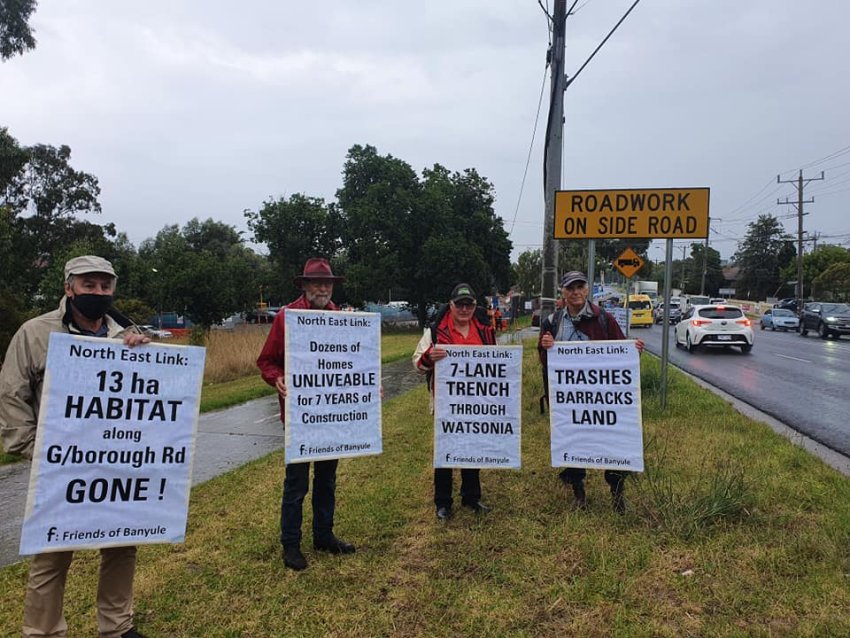
The North East Link project (NEL) will be the biggest road project in Victorian history. It will also be hugely expensive, estimated, to cost $16 billion.
More crucially it will be an environmental disaster and fail to solve the traffic congestion in Melbourne’s north eastern suburbs.
The NEL will widen the existing the Eastern Freeway from its current 6–10 lanes to a 12–24 lane freeway.
Consequently, parkland, sporting facilities as well as homes and businesses will be sacrificed. At least 26,000 mature trees will be cut down. It will lead to greater car dependency and especially in northern and eastern suburbs.
It is based on a transport model that is 50 years out of date: from times when Los Angeles freeways were considered the model for the future in Victoria. It is in fact a relic from the past.
In addition to generating more traffic which would further congest arterial and local roads in northern and eastern suburbs, the NEL will increase noise and air pollution and obviously add to our greenhouse gas emissions. It has been described as a “climate bomb”.
Much research has shown that freeways attract traffic. This is known as “induced demand”. Angie Schmitt in StreetsBlog USA explained it like this: ”That means transportation agencies are green-lighting money for highway expansions that are destined to become congested again only a short time later”.
In other words new roads do not solve traffic problems. They also, almost always, use up large amounts of public funds.
The NEL cannot solve the congestion problems on the Eastern Freeway. Increasing and improving public transport is the only measure that will actually take cars off the road.
The Stop North East Link Alliance organised its first public rally on January 29 since the health regulations were eased. It has planned more public activities and has been lobbying the four councils — Banyule, Manningham, Whitehorse and Boroondara — that will be most impacted.
Campaigners face a huge hurdle trying to convince councillors that the project can be stopped and that they should take a stand to protect the wellbeing of residents.
After first challenging the project, unfortunately now Greens councillors have bought the idea that the project cannot be stopped. This stand helps undermine campaigns to fight the project. It also signals a lack of courage when it comes to protecting the health of residents and the environment.
In the recent council elections in Banyule, for instance, Greens candidates refused to take the anti-NEL campaign seriously, telling campaigners that it was “too late”.
Yet Banyule residents are being severely impacted, as work has begun in that area.
Campaigners from the Stop North East Link Alliance are extremely disappointed with this surrender and feel abandoned by the Greens.
They believe that local government representatives need to stick up for the interests of the people they represent, not raise the white flag.
This campaign is deserving of support from a party that professes to stand for the environment and real action on the climate crisis.
[Mary Merkenich is a founding member of the Stop North East Link Alliance.]